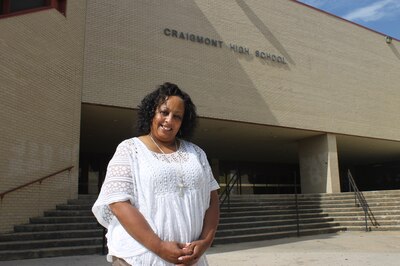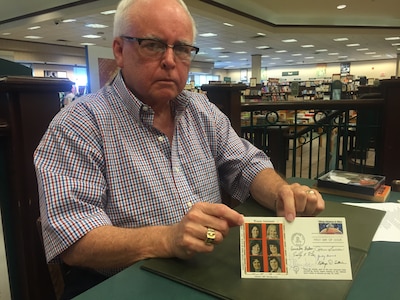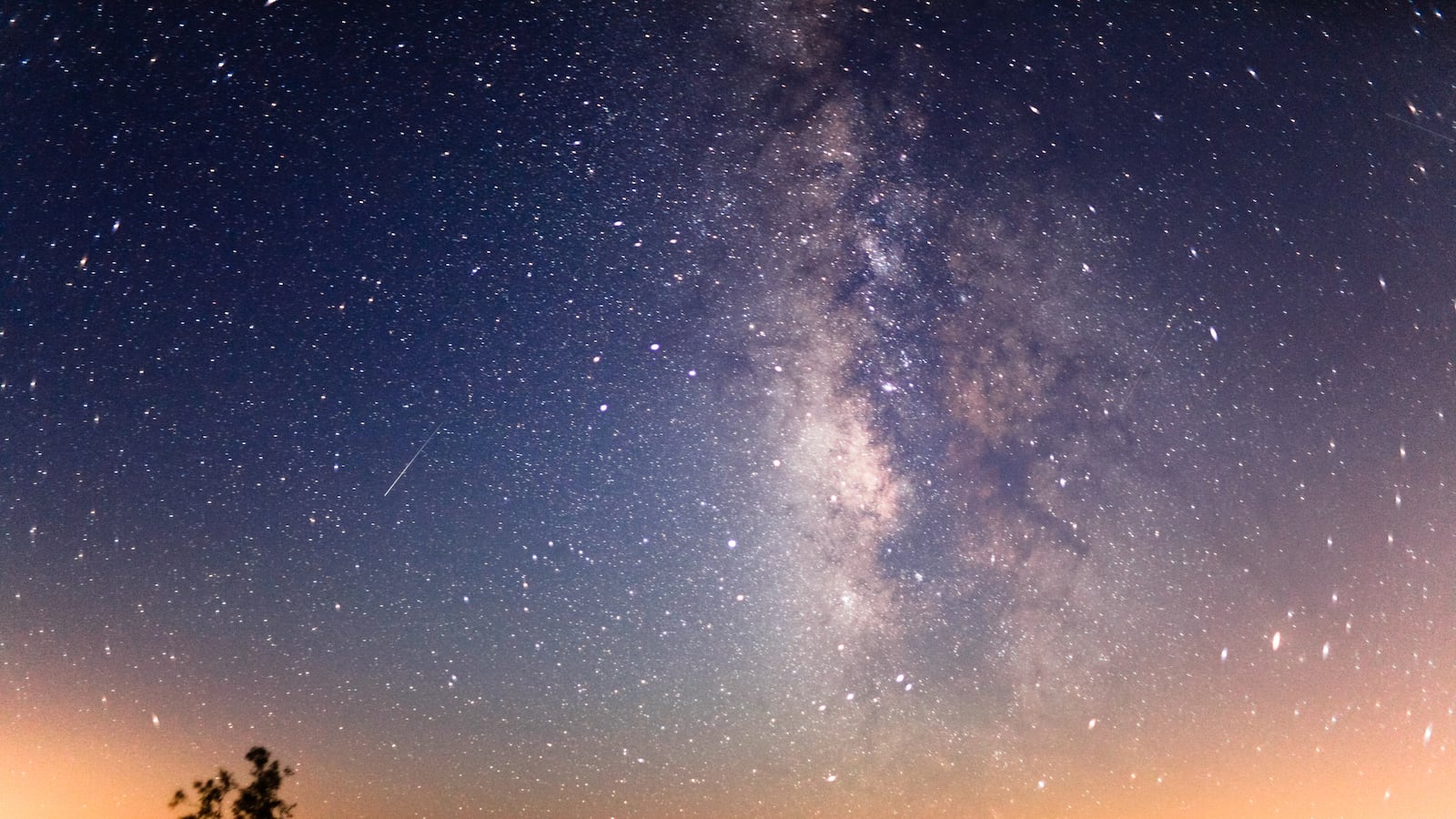Walking down the center aisle of a unique theater that once was a source of pride for Craigmont High School, principal Tisha Durrah gestures at the hundred or so empty seats, headrests pointed skyward, sitting under a large white dome.
“All of this is just defunct,” Durrah said of the planetarium at the 40-year-old Memphis school. “If you see all of this equipment, the lights, the lighting, I mean, look how antiquated it is. … There’s a cassette tape somewhere here.”
One of at least four district-run planetariums in Tennessee, Craigmont’s was built for $150,000 and opened with the new school in 1975 in the Raleigh community. Thousands of people, including many groups of students, sat under its dome to gaze at the stars and watch programs produced and presented by students and long-time director Duncan Teague.
But after Teague retired in 2008 and the equipment became dated, the planetarium went dark in 2010. Now the space is used for classes and ceremonies and for the school’s football team to watch game films.

Durrah, who became principal in 2015, wants to restore Craigmont’s planetarium to its former glory with the help of alumni, a GoFundMe campaign and hopefully seed money from Shelby County Schools.
Estimates vary on how many thousands of dollars that will cost. But Durrah is making the project a priority.
“I think with us having a STEM program here, this is so necessary,” she explained.
There’s much work to be done. The planetarium’s control panel now collects dust in the back of the room next to thick yellowing computers and outdated box speakers. Still, its glory days are vivid in the minds of teachers and students who first brought the planetarium to life.
Teague still remembers which buttons to press and the specific order of the switches on the control panel. He lists the names of planetarium students he taught through the years, including one who went on to work for the Johnson Space Center in Houston and several others who also have made careers in astronomy.
For Teague, the planetarium was first and foremost a teaching tool — a way to make others excited about the universe through the study of astronomy.
“Some people want a planetarium show experience to be a backdrop for showing visuals. … They just want to use the instrument in the center of the room like you’d use the wallpaper on your cell phone, just like a pretty decoration,” he said. “And I thought a planetarium was for teaching, and that was my approach.”

Under Teague’s watch, Craigmont students produced a newsletter about the cosmos, presented plays using the planetarium’s special effects, and even hosted an astronaut and a moon rock for a special event. Teague and his students also built websites in the early days of the Internet, including a “Mission to Mars” website that received an international award through a ThinkQuest competition.
Another highlight came in March of 1986 when Halley’s Comet made its twice-in-a-lifetime sweep through the solar system and was visible from Earth. The Raleigh planetarium hosted hundreds of people in the middle of one night to locate the famous comet on a star map on the dome, then walk outside to view the real celestial phenomenon through a telescope.
“People left with smiles on their faces, and that’s what you want when they leave a planetarium,” Teague said.
Lisa Bowling, a member of Craigmont’s first graduating class, is helping Durrah to drum up alumni support to resurrect her alma mater’s planetarium. She recalls how the attraction drew hundreds of people from surrounding communities every year to Craigmont, then a new school.
“I was just sadly surprised that it was not in working order,” Bowling said of its current status. “It kind of sunk in my stomach that the school just let it fall by the wayside.”
After 35 years of overseeing Craigmont planetarium, Teague still lives in the Memphis area but has no dreams of being at the control panel again. He is optimistic, however, about its future.
“I hope I will be invited to the reopening,” he said with a grin.

